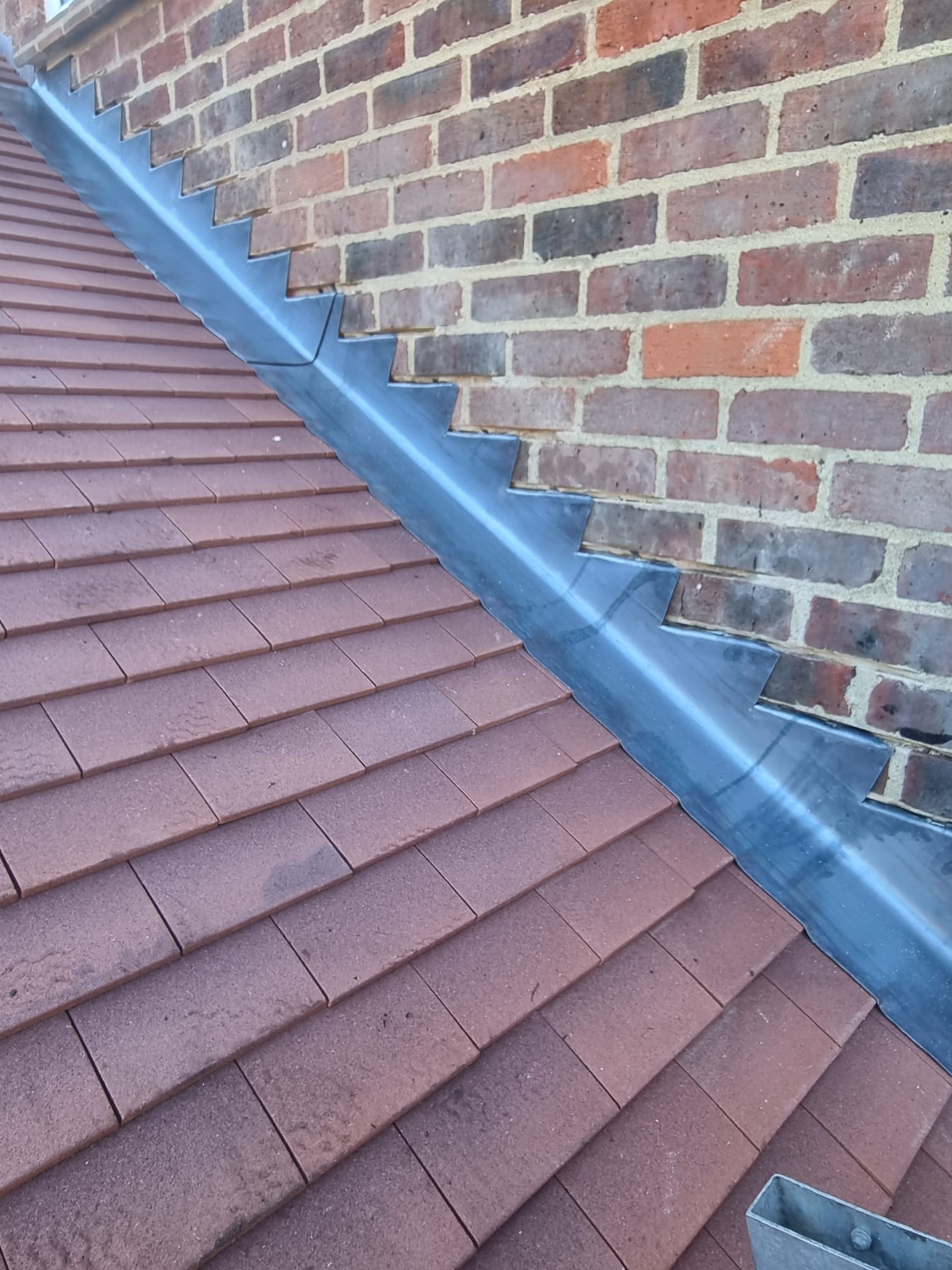+44 7853 968135
How can you tell a dodgy roofer?
Identifying unscrupulous roofing contractors requires understanding the warning signs that distinguish legitimate professionals from opportunistic operators. UK homeowners lose millions annually to fraudulent roofing schemes, making vigilance essential when selecting contractors for roof repairs, maintenance, or replacements. Understanding these red flags protects both your property investment and family safety whilst ensuring quality workmanship that stands the test of time.
Professional roofers demonstrate their credibility through transparent business practices, proper documentation, and verifiable credentials that can withstand scrutiny. The difference between legitimate contractors and cowboy operators becomes apparent through their communication methods, pricing structures, and approach to customer relationships.
Warning Signs of Untrustworthy Roofing Companies
Recognising dishonest roofing companies begins with understanding their typical behaviour patterns and business practices. Legitimate contractors establish trust through consistent communication, detailed documentation, and transparent pricing structures that homeowners can verify independently. These professionals understand that quality roofing work requires careful planning, proper materials, and adherence to building regulations.
Unscrupulous operators often avoid providing verifiable business credentials, maintaining fixed addresses, or sharing comprehensive insurance documentation with potential customers. Their communication patterns typically involve pressure tactics, unrealistic timelines, and reluctance to provide detailed written estimates that homeowners can review thoroughly.
Professional roofers welcome scrutiny of their qualifications, encourage customers to verify credentials through official channels, and provide comprehensive warranties backed by established business practices.
Need some Support with Flat Roofing? Speak with a member of our Professional Flat Roofing Team here

Spotting Door-to-Door Roofing Scams
Door-to-door roofing scams represent one of the most common methods fraudulent contractors use to exploit unsuspecting homeowners. These operators typically claim to have noticed roof damage whilst working in your neighbourhood, creating artificial urgency around repairs that may not actually be necessary. Their sales presentations often include dramatic assessments of roof conditions designed to frighten homeowners into immediate action.
Legitimate roofing contractors rarely engage in unsolicited door-to-door marketing, preferring to build their reputation through quality workmanship and customer referrals. Professional contractors understand that homeowners need time to research options, obtain multiple quotes, and make informed decisions about significant property investments.
The pressure tactics employed by door-to-door scammers include claims about limited-time offers, assertions that work must begin immediately, and demands for substantial upfront payments. These approaches contradict standard industry practices where professional contractors provide detailed estimates, realistic timelines, and flexible payment schedules.
Red Flags in Roofing Estimates and Pricing
Fraudulent pricing tactics manifest through various deceptive practices designed to maximise profits whilst providing substandard workmanship. Professional estimates include detailed breakdowns of material costs, labour charges, and project timelines with transparent explanations for all expense categories. These comprehensive documents allow homeowners to understand exactly what services they’re purchasing and compare offerings from multiple contractors.
Suspicious pricing patterns include verbal-only estimates, refusal to provide written documentation, and significant price variations that cannot be explained through material quality or scope differences. Legitimate contractors price their services competitively whilst accounting for quality materials, proper labour, insurance coverage, and business overheads that ensure sustainable operations.
| Warning Sign | Professional Approach | Dodgy Contractor Behaviour |
|---|---|---|
| Initial Contact | Responds to customer enquiry | Unsolicited door-to-door visit |
| Quote Provision | Detailed written estimate | Verbal quote only |
| Payment Terms | Staged payments with milestones | Full payment demanded upfront |
| Timeline | Realistic project schedule | Immediate start required |
| Documentation | Comprehensive contracts and warranties | Minimal or no paperwork |
| Insurance | Verified coverage certificates | Cannot provide insurance proof |
Bait-and-switch techniques represent another common fraudulent practice where initial quotes appear reasonable but escalate dramatically once work begins. Professional contractors honour their written estimates and communicate any necessary changes through formal documentation with clear explanations for additional costs.
How to Check If a Roofer Is Licensed in the UK?
UK roofing contractors should hold relevant certifications and memberships with recognised trade organisations. The National Federation of Roofing Contractors (NFRC) maintains a directory of certified members who meet strict professional standards and undergo regular assessments.
Competent Person Scheme membership demonstrates a roofer’s commitment to building regulations compliance and professional development. These schemes, approved by the UK government, ensure contractors understand current regulations and maintain appropriate skills for safe, compliant work.
Verification processes help homeowners confirm a contractor’s credentials through official channels rather than relying solely on claims made during sales presentations. The UK government’s Trustmark website provides a comprehensive database of approved tradespeople who undergo rigorous vetting procedures.
Insurance documentation represents a fundamental requirement for legitimate roofing contractors operating in the UK. Public liability insurance protects homeowners from potential damages, whilst employer’s liability coverage ensures proper worker protection during projects on your property.
| Certification Type | Issuing Body | What It Covers |
|---|---|---|
| NFRC Membership | National Federation of Roofing Contractors | Technical competence and business standards |
| Competent Person Scheme | Government-approved bodies | Building regulations compliance |
| Public Liability Insurance | Insurance providers | Property damage protection |
| Trustmark Approval | Government-endorsed scheme | Quality and customer service standards |
Protecting Yourself From Unreliable Roofing Contractors
Understanding the characteristics of dodgy roofers empowers homeowners to make informed decisions when selecting contractors for essential roof maintenance or repairs. Professional roofers demonstrate their credentials through transparent business practices, proper documentation, and verifiable references from satisfied customers.
Due diligence before hiring any roofing contractor includes checking credentials, obtaining multiple quotes, and verifying insurance coverage through official channels. The Trading Standards website provides valuable guidance on consumer rights and protection measures when engaging with home improvement contractors.
Taking time to research potential contractors thoroughly prevents costly mistakes and ensures quality workmanship that protects your property investment for years to come. Remember that legitimate professionals welcome scrutiny of their credentials and encourage homeowners to verify their qualifications before proceeding with any roofing project.
Key protection strategies include:
Need Help with Flat Roofing Matters? Talk to one of our Flat Roofing Experts today!
How Can You Tell a Dodgy Roofer: Frequently Asked Questions
Dodgy roofers typically appear unannounced at your door claiming to have spotted roof problems, demand immediate payment, and cannot provide proper insurance documentation or business credentials. They often use high-pressure sales tactics and refuse to provide detailed written estimates.
Roof repair costs vary significantly depending on the extent of damage, materials required, and property location, with minor repairs starting from £150-£300 whilst major work can cost several thousand pounds. Always obtain multiple written quotes to compare pricing and ensure you receive fair market rates.
Extremely low quotes often indicate corner-cutting on materials, labour, or safety standards, potentially resulting in substandard work that requires expensive remediation. Professional roofers price their work competitively but must account for quality materials, proper labour, and comprehensive insurance coverage.
Reputable roofers maintain public liability insurance (minimum £2 million coverage) and employer’s liability insurance, with certificates readily available for customer inspection. These policies protect homeowners from potential property damage and ensure proper worker protection during roofing projects.
Check membership with trade organisations like the NFRC, verify Competent Person Scheme registration, and search the Trustmark directory for government-approved contractors. Contact insurance providers directly to confirm policy validity rather than relying solely on certificates provided by contractors.
Stop all work immediately, document any existing damage with photographs, and contact Trading Standards or Citizens Advice for guidance on your consumer rights. Avoid making further payments and consider seeking legal advice if significant money has already been paid.
Door-to-door roofers often employ high-pressure tactics and may not represent legitimate businesses, making it safer to research and contact established local contractors directly. Legitimate professionals rarely need to solicit work through unsolicited visits and prefer customers who actively seek their services.
Professional roofers provide detailed written estimates, formal contracts outlining work specifications, insurance certificates, and warranty documentation before commencing any work. All documentation should include company registration details, contact information, and clear terms and conditions.
Project duration depends on roof size, complexity, and weather conditions, with minor repairs taking 1-2 days whilst complete re-roofing may require 5-10 days or longer. Professional contractors provide realistic timelines and communicate any delays caused by weather or unforeseen complications.
Legitimate roofers typically request a small deposit (10-20%) with remaining payments staged according to project milestones, never demanding full payment upfront. Final payment should only be made after work completion and your satisfaction with the finished result.
Search online review platforms, check with local Trading Standards, and request references from recent customers to assess a contractor’s reputation and track record. The Citizens Advice consumer service also maintains records of reported trading issues.
Most roofing repairs fall under permitted development rights, but extensive work or structural changes may require building regulations approval and must comply with safety, insulation, and ventilation standards. Professional roofers understand these requirements and obtain necessary approvals when required.
Report the incident to Action Fraud, contact your local Trading Standards office, and seek advice from Citizens Advice regarding your consumer rights and potential remedies. Consider contacting your bank if payments were made by card, as chargeback procedures may help recover funds.
Essential questions include requesting insurance certificates, trade organisation memberships, local references, detailed written estimates, and clarification of warranty terms. According to roofing industry information, professional roofers should readily provide comprehensive answers to all customer enquiries without hesitation.

